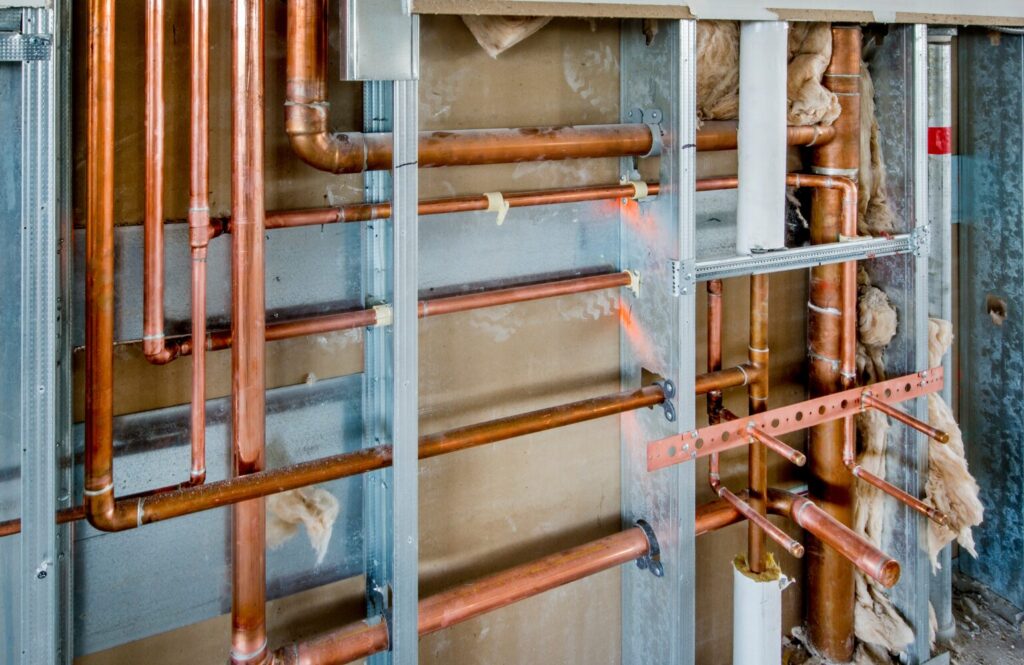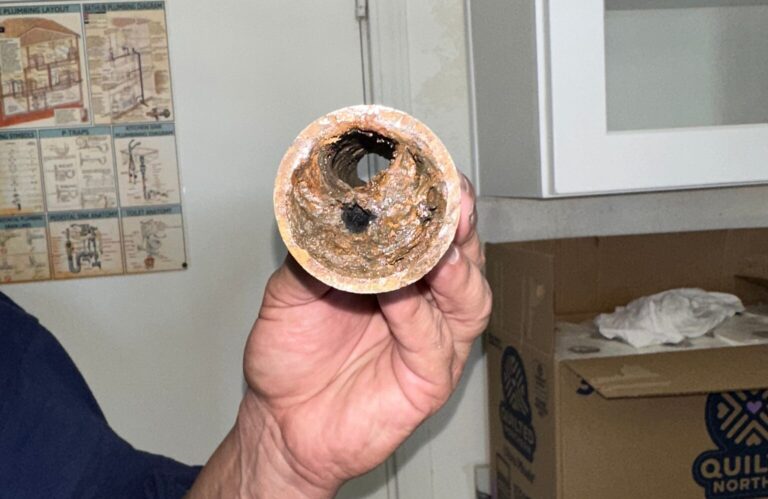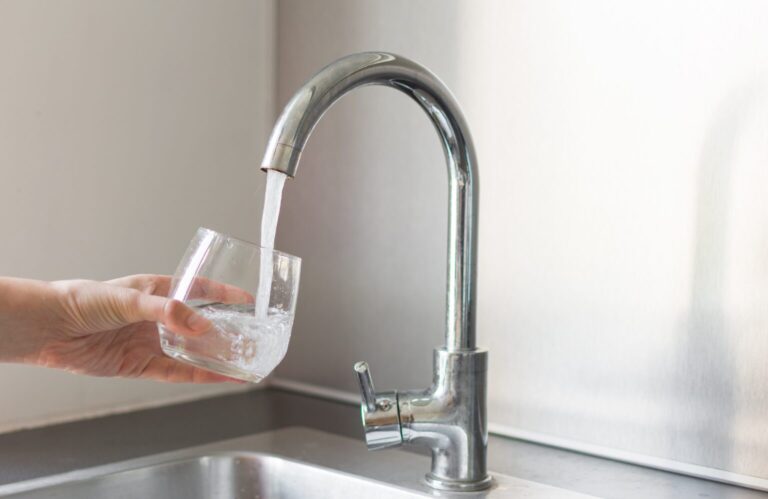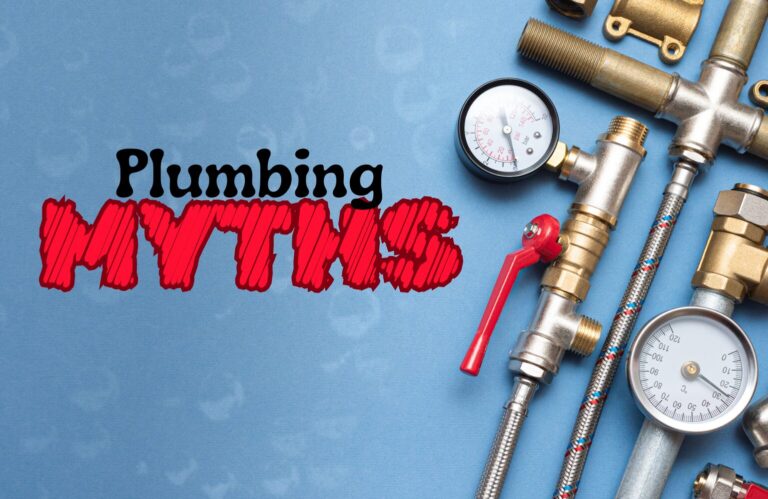
A well-maintained plumbing system can last decades, but every homeowner eventually faces the decision between constant repairs and a full repipe. Understanding the signs that your plumbing system is nearing the end of its lifespan can save you from expensive damage and frequent repairs. In this post, we’ll discuss the key warning signs that indicate it’s time to replace your home’s plumbing rather than patching it up with short-term fixes.
Frequent Leaks and Clogs
One leak may not be cause for alarm, but when leaks start occurring more frequently, it’s a sign that your plumbing system is deteriorating. Over time, pipes can develop small cracks or pinholes, leading to constant leaks. If you’re dealing with regular clogs, it could indicate a buildup of debris or corrosion that routine maintenance or repairs can no longer resolve.
What this means: The more you patch up leaks, the weaker the pipes become. At some point, repiping is more cost-effective than endless repair work.
Discolored or Rusty Water
Have you noticed brown, yellow, or reddish water coming out of your faucets? This discoloration is often caused by rust or corrosion inside your pipes. If you have galvanized steel pipes, rust can flake off and mix with your water supply, resulting in poor water quality.
Why this matters: Rust not only impacts water quality but also signals that the pipes are corroding internally. Corroded pipes are more prone to leaks and breakages, so it’s a sign that your plumbing system might need to be replaced.
Low Water Pressure Throughout the House
Water pressure issues can be frustrating. If the pressure is consistently low in multiple faucets or showers, this could be a sign of corrosion or buildup within your pipes. This buildup restricts water flow, making it harder for water to travel through the system.
When to be concerned: A sudden drop in water pressure or ongoing issues in several areas of your home should prompt a closer inspection. It could mean your plumbing is deteriorating from the inside, and a full repipe may be necessary.
Visible Corrosion on Exposed Pipes
If you have any exposed plumbing, such as pipes under sinks or in your basement, take a look for signs of corrosion, including discoloration, flaking, or dimpling on the pipes. While these may seem like minor cosmetic issues, they often indicate significant internal damage.
The danger: Corroded pipes are weaker and more susceptible to cracking or bursting, leading to potentially costly water damage. Visible signs of corrosion are a clear indicator that it’s time for new pipes.
Age of Your Plumbing System
If your home is more than 40 or 50 years old and has its original plumbing system, it may be time to consider repiping. Older materials like galvanized steel or cast iron are more prone to rust and deterioration. Even well-maintained older systems can reach the end of their lifespan, requiring replacement.
Materials to watch for: Galvanized steel pipes typically last 40-50 years, while copper pipes can last around 70-80 years. If your home was built decades ago and hasn’t had a plumbing update, you could be due for a system upgrade.
Unusually High Water Bills
A sudden spike in your water bill may be an indication of hidden leaks in your plumbing system. Over time, small leaks can add up to a significant loss of water, increasing your utility costs. If you’re constantly repairing leaks but the problem keeps returning, it could indicate that your pipes are failing.
Take note: While higher water bills can be caused by many factors, undetected leaks from aging pipes are a common culprit. A full repipe can eliminate these ongoing issues and help bring your water usage back to normal.
Pipe Material and Its Longevity
Not all pipe materials have the same lifespan. For instance, galvanized steel pipes, which were commonly used in homes built before the 1960s, are prone to internal corrosion. Copper and PEX piping, now more common in modern homes, tend to last much longer. If your home still has outdated galvanized pipes, you may want to consider replacing them with more durable options.
Why material matters: Upgrading to copper or PEX piping offers increased durability and resistance to corrosion. Modern materials are also less likely to suffer from buildup, which can reduce the likelihood of clogs and improve water pressure.
When to Consider Repiping Over Repairs
While repairs can be a quick and cost-effective fix for isolated issues, there comes a point where constantly repairing your plumbing system becomes inefficient. If you’re facing any of the issues mentioned above, it’s worth consulting with a professional plumber to assess whether a full repiping is necessary. Repiping can provide peace of mind, improve water quality, and increase the overall value of your home.
Why Choose Plumbing Squad for Repiping?
At Plumbing Squad, we specialize in providing comprehensive repiping services. Whether your home is dealing with frequent leaks, rusty water, or outdated pipe materials, our experienced and licensed plumbers can assess your system and recommend the best course of action. We use top-quality materials like copper and PEX to ensure your new plumbing system lasts for decades to come.
Contact us for professional plumbing services, call today at 866-587-3482 or email info@plumbingsquad.com.



